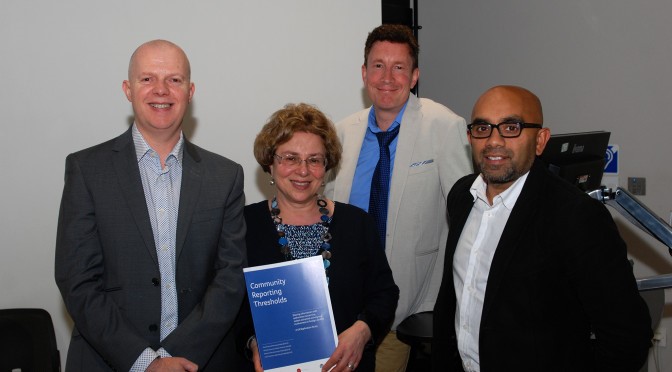
Pictured above (l-r): Professor Paul Thomas, Professor Michele Grossman, Kris Christmann and Dr Shamim Miah
SSI Assistant Director Professor Paul Thomas has worked closely with key partners to explore the barriers to reporting violent extremism.
The first people to suspect or know about someone becoming involved in planning acts of terrorism, including involvement in overseas conflicts, will often be those closest to them.
While these friends, family and community insiders offer a first line of defence, very little is known about what it means to them to report the potential involvement of an “intimate” in violent extremism. This means that ‘intimates’ reporting is currently a critical blind spot in international attempts to counter violent extremism.
Community reporting thresholds

Professor Paul Thomas
Paul Thomas, who is Professor of Youth and Policy at the University of Huddersfield, has researched a wide range of community issues, including the Prevent programme that is designed to halt extremism. Now, he and Visiting Professor Michele Grossman (Deakin University , Melbourne, Australia) have together headed a major new research project titled Community Reporting Thresholds. The research was funded by the Centre for Research and Evidence on Security Threats (CREST) and intended to develop an earlier Australian study by Professor Grossman.

The research team, which also included University of Huddersfield researchers Dr Shamim Miah and Kris Christmann, carried out a national series of in-depth interviews where interviewees from communities were taken through a series of scenarios based on real-life cases. They were asked what their feelings would be, what dilemmas they would face and what course of action they would take if they had information about a relative or friend involved in terrorism. The researchers also interviewed professional practitioners, including counter-terrorism police officers, Prevent coordinators based in local authorities and key workers from Muslim community organisations.
